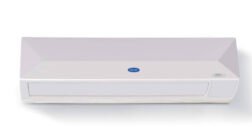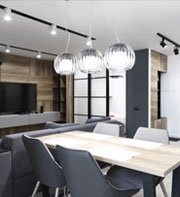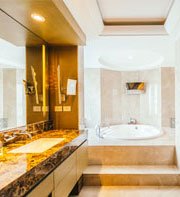A Comprehensive Guide to Choosing the Best Air Conditioner Type for Your Home
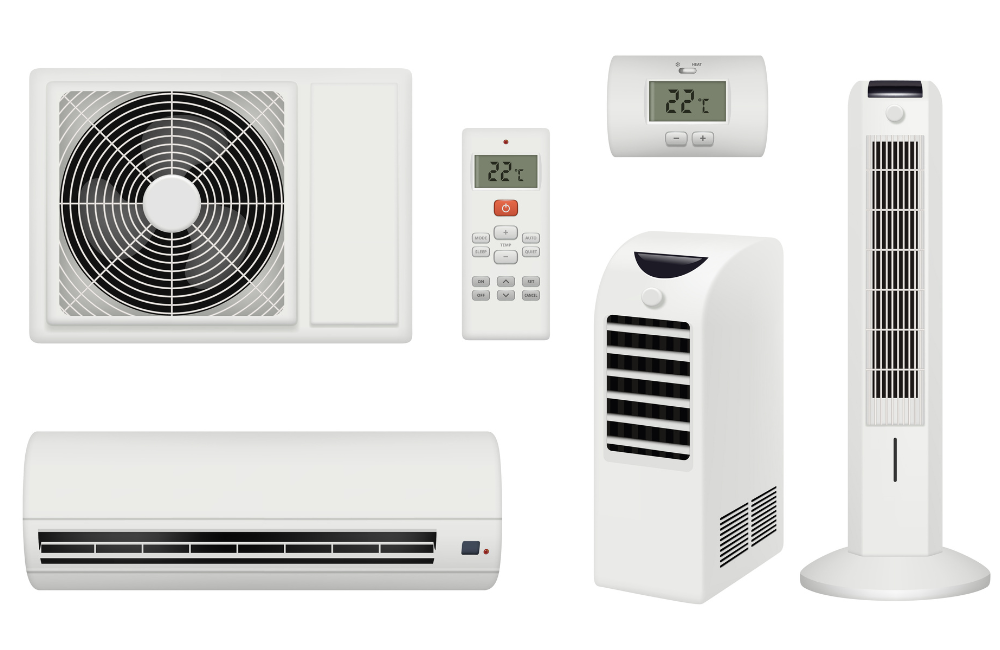
Have you noticed that over the past couple of years, the summers have gotten too harsh to tolerate? In fact, according to reports, 2024 was recorded as the warmest year since 1850. And that’s exactly why there has been a sudden surge in demand for air conditioners across the globe.
However, thinking about buying an AC and actually purchasing one are two different things. Because if you search online, you’ll see that there are a plethora of air conditioning systems available on the market. And every system comes with its own set of unique features and advantages. Hence, deciding what could be the best choice for your home can get challenging!
But with this guide to choosing air conditioners, you will be able to effectively narrow down your choice and opt for the one that best suits your needs.
So, let’s explore this blog to learn in detail about the pros and cons of different air conditioning systems. This will help you make an informed decision and also keep you comfortable during those warm and humid days.
Types of Air Conditioning Systems You Need to Know
An air conditioning system churns out the heat and humidity from a place and returns cool, dry air. The method of cooling that they use and their installation differences help determine their type. Each of the systems has a unique set of benefits, and opting for the right one depends on your specific needs and budget.
Let’s take a closer look at the various types of air conditioning systems available-
1. Central Air Conditioners
Central AC systems are a great choice if you want a single unit to cool your entire house or office. These units work on a split system. They have an outdoor unit and an indoor unit, which are connected via a network of ducts. Upon cooling, the air travels through these ducts to every room.
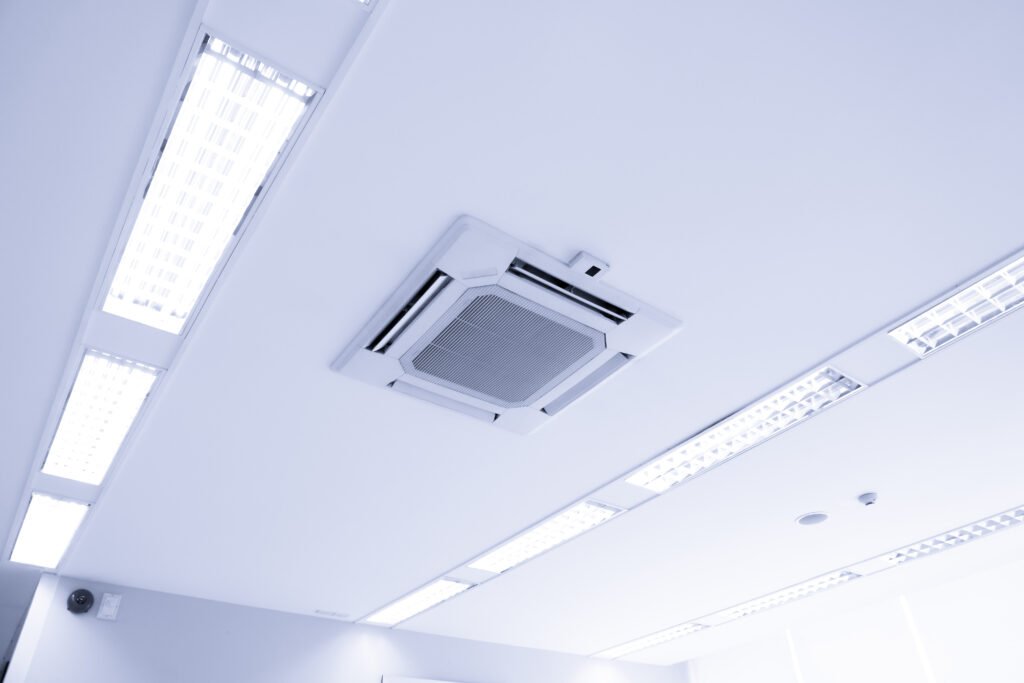
Advantages:
- Central AC units maintain a consistent temperature throughout your entire home. That’s the reason why it is considered the best air cooling system for office spaces or for large properties.
- Most of the components of the system are hidden. So there’s no chance that your vision will be disturbed by a bulky unit hanging off the wall!
- Many central AC systems include advanced filtration. This helps keep the indoor air clean and maintains a good AQI.
Disadvantages:
- The installation process can be expensive, as setting up the extensive ductwork is no child’s play.
- Central AC units might help cool a large area. But that directly translates to higher energy consumption, which leads to higher electricity bills.
- The indoor ducts require regular cleaning and maintenance to prevent dust and mold buildup. That’s an arduous, time-consuming, and routine job that you have to continue doing for the rest of your life!
2. Split Air Conditioners
Split AC units, also referred to as mini-splits, have become massively popular in recent times. These systems also run on an outdoor unit and have one or more indoor units.
However, the difference between split AC and central AC systems is that the former doesn’t require extensive ductwork. Instead, a small duct or pipe connects the indoor and outdoor components.
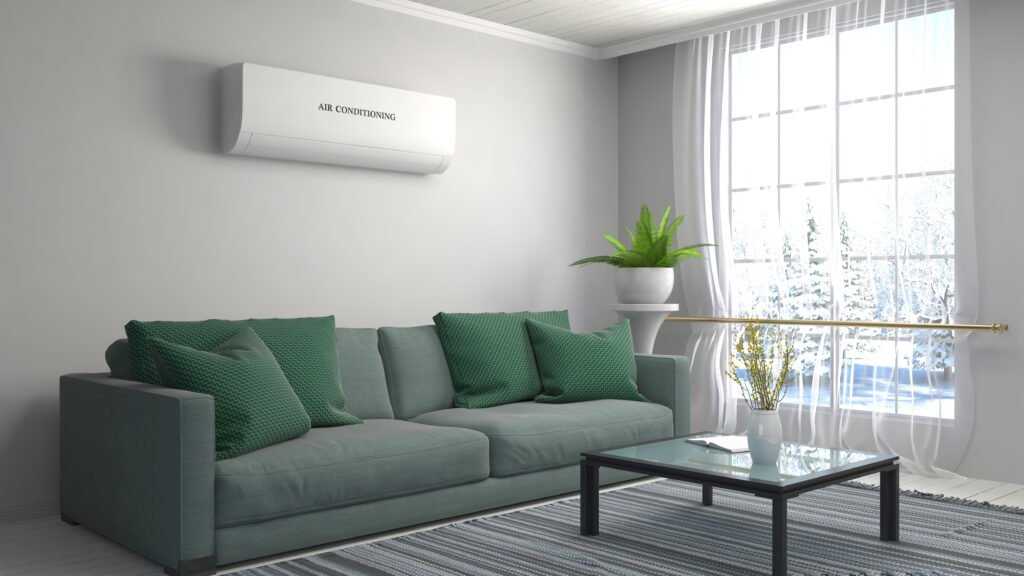
Advantages:
- Split AC systems are very much capable of cooling specific rooms or zones. This means these units ultimately help save energy.
- There’s no extensive ductwork involved, like in the case of central systems. This means installation is quicker, less invasive, and less costly too.
- If you live in a small space, split AC systems can prove to be far more efficient than central ones.
- The indoor units of these systems operate very quietly. So, you can rest assured that no white noise is going to disturb you!
Disadvantages:
- The indoor unit is supposed to be mounted on a wall. This means the split unit might not cater to every palate, and might not suit every interior decor type.
- If you live in a large home, you might need several indoor units to cover your entire house.
- Each of the indoor units adds to the overall expense. So, if you’ve multiple rooms, installing split units might as well burn a hole in your pocket!
Split AC units are a viable option for domestic usage. Learn more about the benefits of a split AC system to understand its domestic viability.
3. Window Air Conditioners
Window AC units are perhaps the most common ones, and also the most extensively bought units across the world. These are self-contained units that fit directly into a window frame. These window units are designed to cool a small space, for instance, a single room.
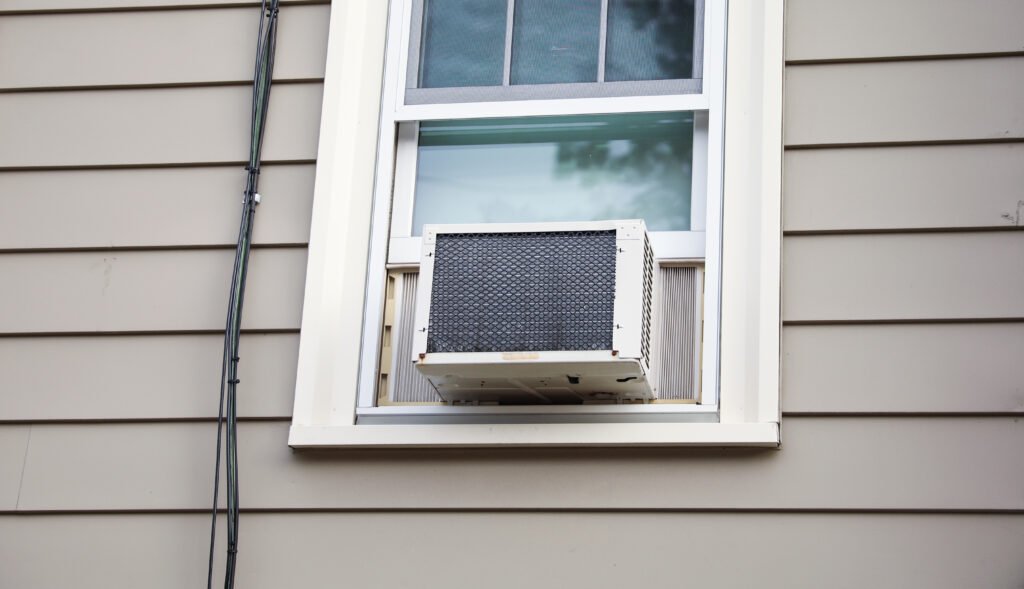
Advantages:
- Window ACs are the most common units for domestic usage. Hence, it remains one of the most affordable options among all other AC systems.
- If you’re ready for some elbow grease, you can easily install these units using simple DIY techniques! You won’t need any professional help for that. And that’s the reason why it is considered the best air cooling system for the home.
- Window AC units can be removed and stored during colder months. So, they can stay durable and functional for years to come.
Disadvantages:
- These units take up a significant portion of your window. Hence, it’s common to experience blocked views. Added to that, it also prevents natural light from entering your room.
- One of the main disadvantages of window units is their noise! These systems can be quite noisy, especially the older models, which can get on your nerves!
- Window AC units might struggle to cool a large room. These are best for smaller, enclosed spaces.
4. Portable Air Conditioners
Portable AC units are free-standing units. Unlike other units that need to be fixed against the wall, these units sit on the floor, much like an air cooler! And pretty much like an air cooler, you can move the portable units from one room to another. This system uses a hose to vent hot air out through a window or wall.
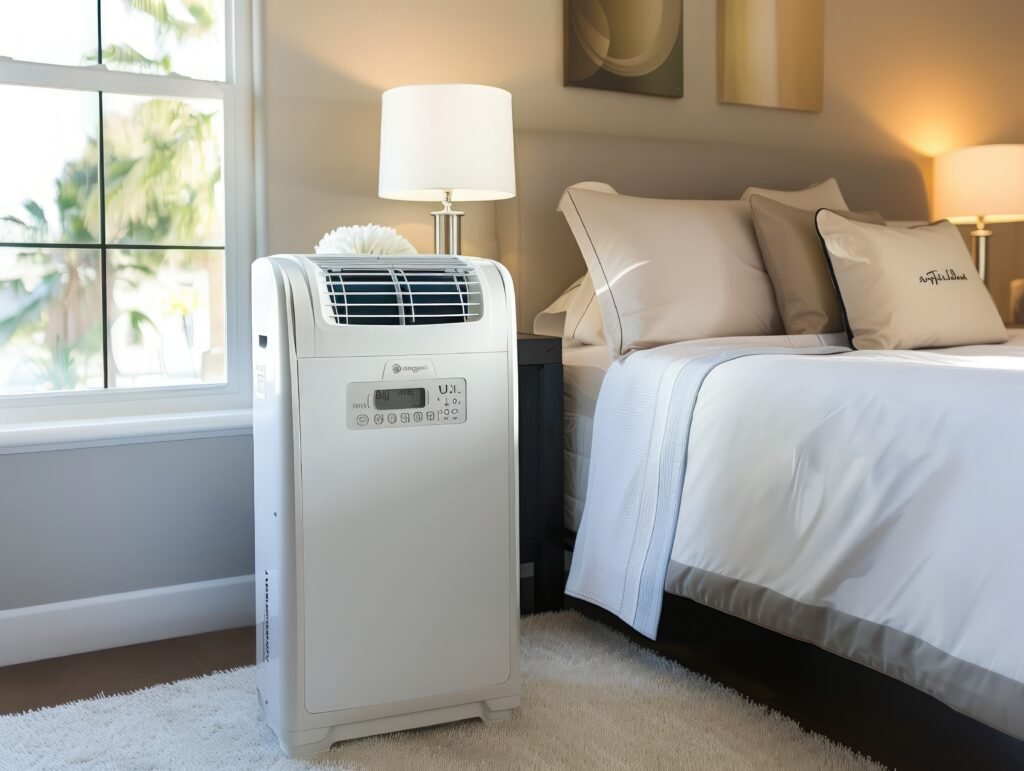
Advantages:
- You can easily move the unit anywhere you need cooling. That’s one of the good reasons to opt for portable systems.
- Portable AC units are rather simple setups with a window kit. So, there’s no need to face installation hassles. Just place it, plug it, and you’re good to go.
- Another thing about portable AC units is their seamless cooling efficiency. They can be used in small as well as big rooms as needed.
Disadvantages:
- One of the main drawbacks of portable units is that they are noisy! In fact, the noisiness can surpass window units or split systems easily!
- Indeed, these units don’t have installation issues. But, being a bulky unit, this can occupy a substantial floor space.
- These units need access to a window to let the hot air vent out.
5. Geothermal Air Conditioners
Geothermal air conditioning systems are a substantial investment. But, at the same time, these units offer long-term savings like no other system! Their mechanism is quite different as well. They use the stable temperature of the Earth to regulate indoor temperatures. This technology can help both heat and cool your home. Make long term savings by using the Earth’s stable temperature, aligning with green technology for efficient home comfort.
Advantages:
- These units can save about 30 – 70% on heating and cooling bills!
- Unlike all the other units, geothermal ACs use renewable energy, which helps reduce your carbon footprint.
- The components of this unit are sturdy and can last for decades.
- Most of the system is installed underground. This makes the AC system very quiet and ear-soothing.
Disadvantages:
- Installation of a geothermal AC unit is expensive and time-consuming as well. Why? Because the process involves excavation!
- Specialized professionals are required for optimal installation of these units. It’s not a DIY job.
- These units aren’t suitable for all types of properties, as they require sufficient outdoor space for ground loops.
So, now that you’re aware of the advantages and disadvantages of air conditioners, it will be easier for you to determine the correct choice.
Air Conditioner Buying Guide: How to Choose the Right Unit for Your Home?
Now that you’re aware of the different types of air conditioners, let’s explore how to choose the right system for your home.
- The size of your room
First up comes the room size where you want the system to be installed. So, measure the square footage of the room you want to cool, and choose a variant accordingly.
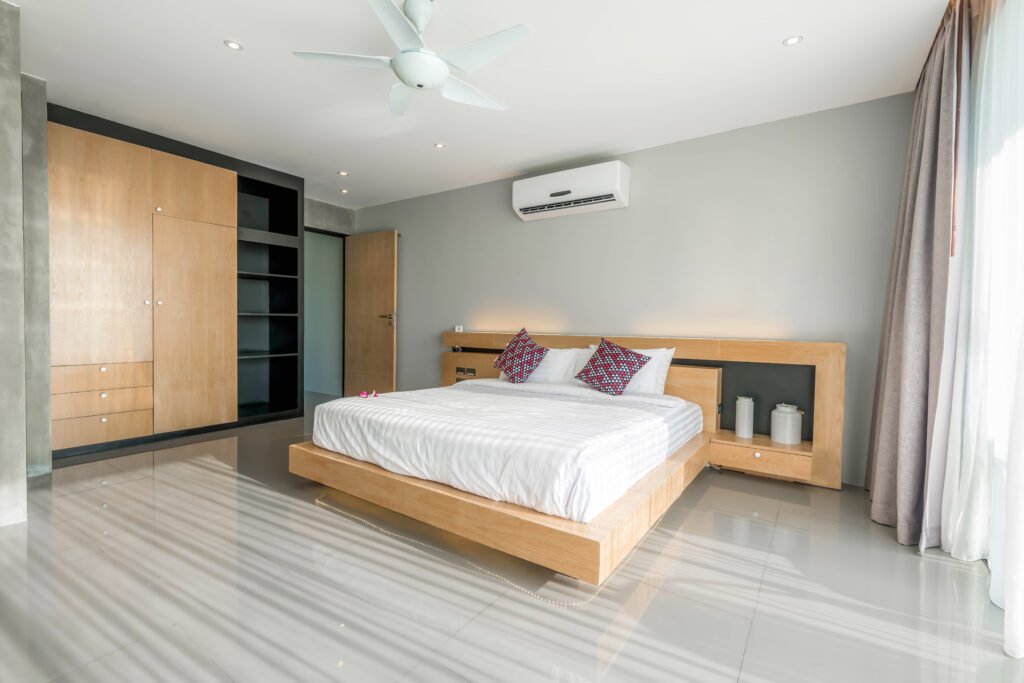
Do you live in a dry heat zone or a humid zone? This is a crucial input that impacts the kind of system you’re about to install.
- Your budget
Your budget is one of the most crucial factors here. So, determine the kind of upfront cost you’re ready to spare, and also keep in mind your long-term energy costs.
- Your noise tolerance
Some units are much quieter than others, while some are very noisy! So, before finalizing your decision, make sure to determine your noise tolerance levels! Not just that, but make sure to thoroughly check each of the systems and determine what kind of noise levels you can live with.
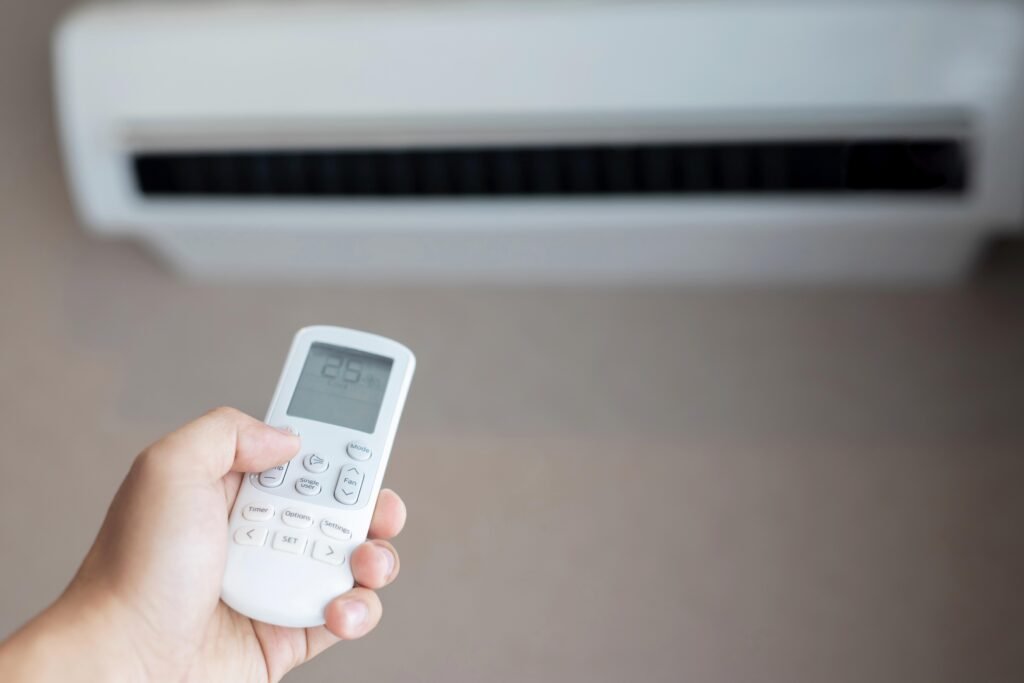
- Energy efficiency
Look for SEER (Seasonal Energy Efficiency Ratio) ratings while buying an AC unit. Higher numbers mean more energy efficiency, which can help you save money on energy in the long run.
- Additional features
Some air conditioning units come equipped with special types of features like air purification, dehumidification, sleep modes, and smart connectivity. So, make sure to check for the features before finalizing your purchase.
Wrapping Up
There are a myriad of air conditioning units that come equipped with the latest cooling technologies and an array of features. However, if you’re looking for the best types of AC units for your home, you’ll have to have a different approach altogether!
And that involves determining every little thing, including your preferences, and the type of climate you’re living in! Because that’s the only way you can get a value for money product that lasts long, and keeps you comfortable from the scorching heat for years to come!
So, what are you waiting for? Go to your nearest electronic store, and bring home an air conditioning system to keep you calm during the sweltering summers!
Frequently Asked Questions (F.A.Qs):
1. What is the best type of air conditioner to use?
The best air conditioner depends on the following factors-
- Your specific needs
- Your room size
- Your budget
2. Which type of AC is best for home?
A central air conditioner is considered the best for cooling an entire home. And that’s because it is the only type of system that offers uniform cooling. However, if you need to cool specific areas, a split air conditioner is an excellent choice.
3. What is the most energy-efficient mode of air conditioning?
The “Eco mode” or “Energy-saving mode” is generally the most energy-efficient setting on an air conditioner. This mode adjusts the compressor speed and fan settings to maintain comfort while minimizing power consumption.
4. How long does an air conditioner lasts?
With proper maintenance, a modern air conditioner lasts between 15 to 20 years. Factors like usage frequency, climate, quality of installation, and regular servicing contribute to its overall lifespan.

As a lifelong DIY enthusiast, Alex Barton is never afraid to go the extra mile to save a few bucks! From seamless interior decor hacks to effective DIY home renovation tips, he shares a myriad of his experiences for you to unleash your creativity.


